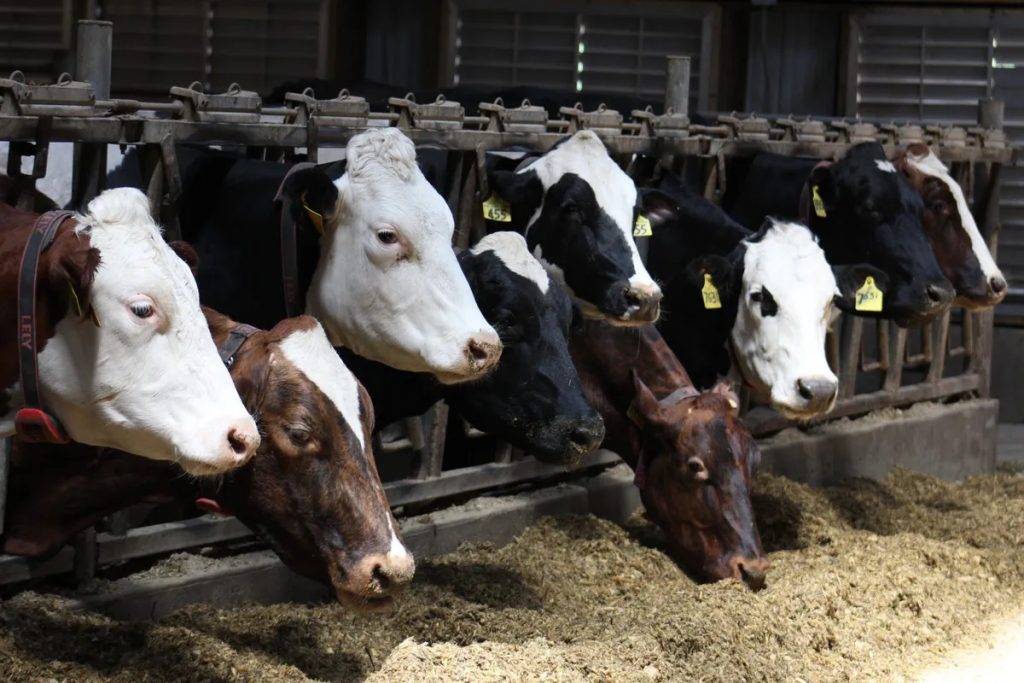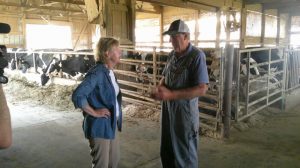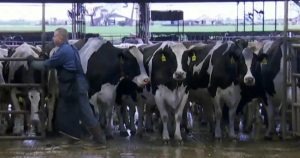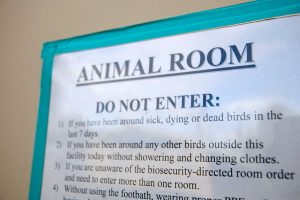
Public health officials are recommending wider testing and more aggressive use of flu antiviral medicine for workers who might be exposed to bird flu at poultry and dairy farms.
The Centers for Disease Control and Prevention unveiled updated recommendations Thursday after a new study of 115 dairy farm workers in Colorado and Michigan, which found that 7% appeared to have been infected with bird flu but only half of those workers recalled having symptoms. CDC officials said the study suggests asymptomatic workers who engage in jobs that put them at high risk for exposure at poultry and dairy farms might be at heightened risk for infection.
The CDC previously recommended testing be limited to workers who had symptoms after exposure to infected animals. Officials now recommend workers exposed to an infected animal be tested even if they haven’t had symptoms.
“We in public health need to cast a wider net in terms of who is offered a test so that we can identify, treat and isolate those individuals,” said Nirav D. Shah, the CDC’s principal deputy director.
The agency also recommends giving workers Tamiflu, an antiviral medication for flu, if they weren’t using protective equipment during a high-risk exposure to an infected animal – regardless of whether they have symptoms. Examples of high-risk exposure include being splashed with raw milk from an infected cow or exposed to the virus while culling infected poultry, Shah said.
The CDC said it would update its personal protective equipment recommendations to farms and workers based on their risk of exposure. Workers in certain jobs have a higher risk of exposure. Of the 7% of Colorado and Michigan dairy workers who were infected, all said they had cleaned the milking parlor and 88% had milked cows, the study said.
Shah said the updated precautions are aimed at keeping workers healthy and slowing the spread of the H5N1 virus, known as bird flu.
“The less room we give this virus to run, the fewer chances it has to cause harm or to change,” Shah said. “And the best way to limit the virus’ room to run is to test, identify, treat and isolate as many cases as possible in humans.”
The CDC’s updated recommendations are based, in part, on the study of 115 dairy workers in Colorado and Michigan. Blood tests found eight workers had been infected with bird flu, but only four of those workers recalled having symptoms. The most common symptom among those who’d experienced any was red, draining and itchy eyes.
None of the infected workers in the study had worn respiratory masks while performing their duties, and less than half had used protective goggles.
Researchers said workers were interviewed an average of 49 days after they had been exposed to infected cows. Their answers were based on what they recalled about workplace safety measures at the time of exposure.
Bird flu has spread rapidly across U.S. dairies since being detected in wild birds in Texas last year. Farm workers in multiple states have been infected but there has been no evidence the virus can spread from person to person.
Shah said the new blood test study does not raise concerns about the possibility of person-to-person transmission. The updated testing and Tamiflu recommendations aim to “drive that risk down as low as possible,” Shah said.
Bird flu hasn’t impacted the nation’s dairy supply. Milk is safe to drink once it is pasteurized, a process that kills pathogens.
(This story has been updated to add new information.)
You can now read the most important #news on #eDairyNews #Whatsapp channels!!!
🇺🇸 eDairy News INGLÊS: https://whatsapp.com/channel/0029VaKsjzGDTkJyIN6hcP1K
























